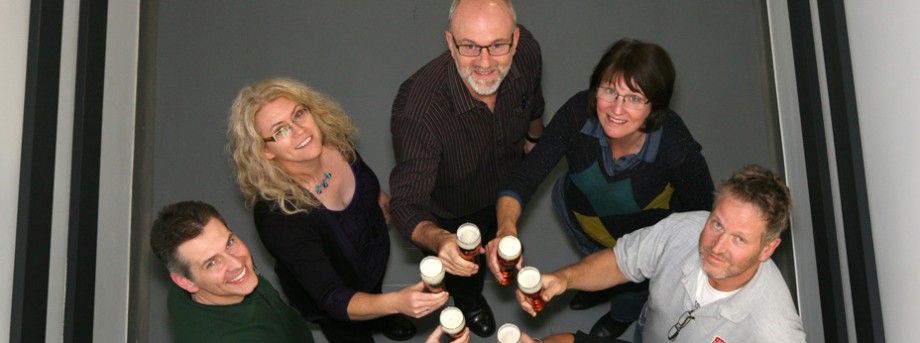The University of Nottingham
 Exchange online
Exchange online
Research Exchange
All hail the ale

In 2004, China overtook the USA to become the world’s largest beer market. The competition is growing increasingly fierce amongst the main brewers, but there are niche markets for microbrewers. That’s where the brewing experts — and we’ve got plenty — come in…
The University is working with 20 micro-brewers across the East Midlands on a ‘Routes to Market’ project to help them develop bottled conditioned beers that can be sold to China and South East Asia.
Brewing science experts have teamed up with the Food and Drink iNet (Innovation Network) to help microbrewers in the region to develop stable, bottle conditioned beers that are suitable for export.
The regulations regarding beer duty mean that if brewers are making under a certain volume of beer, the rate of duty decreases. This has resulted in seven per cent per annum increase in the number of craft brewers in the UK, a significant proportion of whom are based in the Midlands.
However, with bottle conditioned beers, the final conditioning of the beer takes place in the bottle, which means that the quality can often vary considerably. The team from the University is working with the micro-brewers to increase their control of the process to achieve more consistency in the fully conditioned beers — leading to higher quality.
The project involves surveying all of the existing bottle conditioned beers produced by the micro-brewers and testing them for consistency, measuring qualities such as alcohol by volume, CO2, microbial stability and shelf life.
Different strains of wet and dry active yeasts are also being tested on the beers, to determine which offers the most consistent results. In addition, the team will examine all of the processes the brewers are using to make their beers to identify and share best practice.
The Lincoln Green Brewing Company, based in Hucknall, Notts is one of the businesses taking part in the Routes to Market project. Anthony Hughes, Managing Director of the company, said: “The Routes to Market initiative came at just the right time for us, as we had just started looking at bottling with a view to exporting in the future.
“As a result of the University’s support, we have been reseeding the beer with an additional yeast strain, to stabilise the beer. An expert from the University even came out to help us reseed the first batch of beer so that we could see how it should be done.”
Alongside the work being undertaken on the development of the bottle conditioned beers, the University’s Asia Business Centre will be providing a detailed analysis of the markets for premium beers in China, Hong Kong and the wider South East Asia region. The University will also provide microbrewers with guidelines on the export process and routes to market for bottle conditioned beers.
Leave a Reply
Other

Top prize for quantum physicist
A University of Nottingham physicist has won a prestigious medal from the Institute of Physics for […]

Zero carbon HOUSE designed and built by students comes home
Design and construct a low cost, zero carbon, family starter home, transport it to Spain, build […]